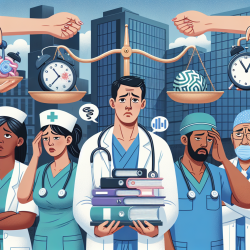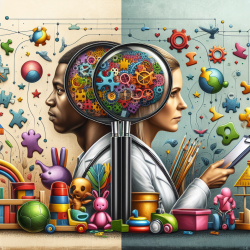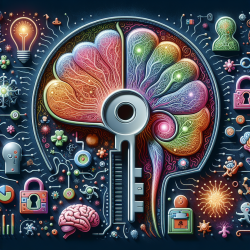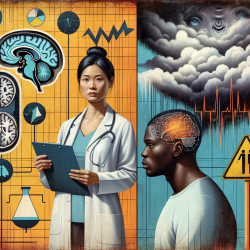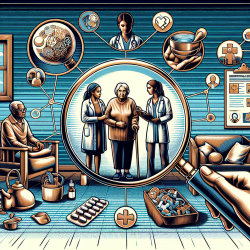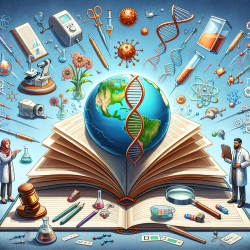Introduction
In the field of speech-language pathology, understanding human development is crucial for creating effective therapy strategies. The research article "The Recovery Process Utilizing Erikson’s Stages of Human Development" offers a unique perspective by integrating Erikson's psycho-developmental model with psychiatric recovery. This model can provide valuable insights for practitioners working with children, allowing them to tailor interventions that foster better outcomes.
Erikson's Stages of Development and Recovery
Erikson's theory outlines eight stages of human development, each characterized by a specific conflict that individuals must resolve. The research suggests that these stages can be paralleled with the recovery process in mental health, providing a structured framework for therapy. Understanding these stages can help practitioners support children in their developmental journey, especially those facing mental health challenges.
Application in Speech-Language Pathology
By integrating Erikson's stages into therapy, practitioners can better address the emotional and psychological needs of children. Here’s how each stage can be applied:
- Trust vs. Mistrust: Establishing a safe and supportive environment for children to build trust in their abilities and in the therapeutic process.
- Autonomy vs. Shame/Doubt: Encouraging independence in communication and decision-making, fostering a sense of autonomy.
- Initiative vs. Guilt: Supporting children in initiating communication and social interactions, reducing feelings of guilt or inadequacy.
- Industry vs. Inferiority: Helping children develop skills and confidence in their communication abilities, promoting a sense of industry.
Encouraging Further Research
While the integration of Erikson’s stages with recovery models provides a promising framework, further research is needed to explore its full potential in speech-language pathology. Practitioners are encouraged to delve deeper into this approach, examining how it can be adapted to various therapeutic settings and populations.
Conclusion
Understanding and applying Erikson's stages in therapy can enhance the recovery process for children, promoting better communication and emotional well-being. By adopting a developmental perspective, practitioners can create more personalized and effective therapy strategies, ultimately leading to improved outcomes for their young clients.
To read the original research paper, please follow this link: The Recovery Process Utilizing Erikson’s Stages of Human Development.



